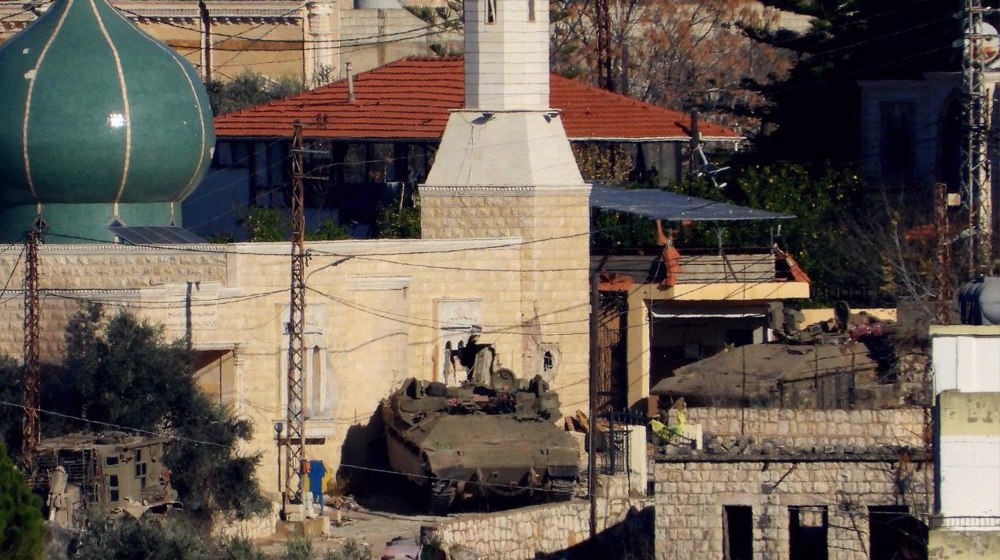Lebanese should brace for more terrorist attacks: Security chiefs
Lebanese security chiefs have warned of a heightened terrorist threat in the wake of deadly bombings in a Christian village at the border with crisis-stricken Syria.
“We should not rule out that this terrorist crime is a harbinger of a wave of terrorist operations,” read a Tuesday statement released after a cabinet meeting, attended by Prime Minister Tammam Salam and other security chiefs.
“It could be an indicator of a new more aggressive phase of the battle with terrorist organizations, which work tirelessly to inflict harm on Lebanon and to drag it into chaos and ruin,” said the statement.
The warning came a day after the village of al-Qaa was targeted in two waves of bombings that killed five people and injured 31 others. The first group of bombers attacked before dawn and the second later at night, two of them blowing themselves up near a church.
Security officials say Takfiri Daesh terrorists were behind the attack. There has been no claim of responsibility.
The statement further called on the Lebanese nation to maintain their faith in the state and the security establishment.
“This assault constitutes a qualitative transformation in the war being waged by terrorist organizations against Lebanon as a state and a nation,” the statement read.
“Reality dictates that we foster the highest levels of alertness and awareness and asks of all Lebanese that they confirm their absolute faith in their home and their absolute trust in the Army and security apparatus.”
Information Minister Ramzi Joreige said, “The Cabinet considers itself in a constant state of alert to deal with any security situation and announces that all state agencies will remain on full alert.”
Before the cabinet session Salam said that the terrorist attacks “came as no surprise as security forces were anticipating a new terror attack.”
“Terrorism doesn’t differentiate between one sect and another or one area and another ... a Christian area was targeted today, but we have seen other Muslim areas under attack.”
The Lebanese army said it had mounted dawn raids on Syrian refugee camps, detaining 227 people for being illegally present in Lebanon.

According to aid agencies, the majority of Syrian refugees have no legal status in Lebanon due to the complications and costs of obtaining or renewing residency rights under rules imposed by the Lebanese government.
Interior Minister Nouhad Machnouk revealed that four of the eight bombers were Syrians, saying they were “not from the surrounding refugee camps in al-Qaa.”
Moreover, the Lebanese resistance movement of Hezbollah cancelled a religious gathering scheduled to be staged in southern Beirut on Tuesday evening for security concerns.
Lebanon has often seen the infiltration of Takfiri elements from neighboring Syria into its territory, where they attack the civilian population or security forces with bombings.
On June 12, a bomb explosion rocked the western part of the Lebanese capital, Beirut, but did not cause any casualties.
Last November, however, more than 40 people were killed and dozens of others wounded after two bombings, claimed by the Takfiri Daesh militants, targeted a security post in the Bourj el-Barajneh area in the southern suburb of the Lebanese capital.
5 Israeli forces killed as Palestinian fighters face up to regime’s war machine
VIDEO | Israeli settler killed during strike against Tel Aviv; fresh aggression targets Yemen’s capital
VIDEO | Yemen’s missile strikes on Tel Aviv
Iran to open 6 GW of new power capacity by next summer
VIDEO | South Korean rallies set the stage for battle over Yoon's impeachment
Hamas, other Palestinian groups say Gaza ceasefire deal ‘closer than ever’
VIDEO | Press TV's news headlines
Iran condemns ‘violent’ attack on Christmas market in Germany














 This makes it easy to access the Press TV website
This makes it easy to access the Press TV website